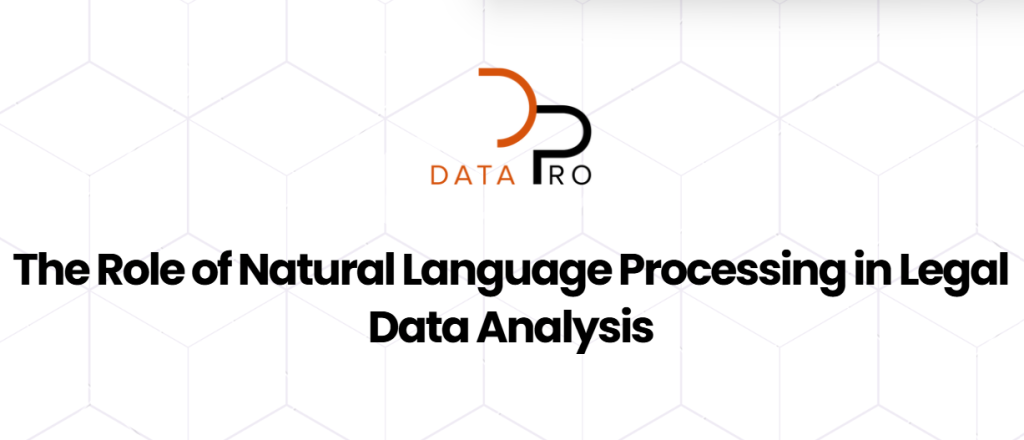
The Role of Natural Language Processing in Legal Data Analysis
As legal systems worldwide grapple with the rapid influx of data and evolving regulatory frameworks, the legal profession finds itself at a technological crossroads. Among the leading innovations shaping the future of legal operations is Natural Language Processing (NLP), a branch of Artificial Intelligence (AI) that’s fundamentally transforming how legal professionals interact with data. This article dives into the critical role NLP plays in legal data analysis, highlighting its applications, advantages, and how it’s paving the way for a more efficient, accurate, and accessible legal system.
What is Natural Language Processing (NLP)?
At its core, NLP is a field of AI dedicated to enabling machines to understand, interpret, and generate human language in a way that’s meaningful and valuable. It draws from disciplines such as computational linguistics, machine learning, and data science to equip machines with the ability to process large volumes of unstructured text-based information.
In legal contexts, this technology becomes invaluable, bridging the gap between human language and legal reasoning, and unlocking insights from vast repositories of statutes, case law, contracts, and regulatory filings.
The Evolution of NLP in Legal Data Analysis
The legal field is inherently text-heavy and detail-oriented, demanding meticulous reading and interpretation of documents. Traditionally, this meant hours of manual labor by legal professionals. However, as NLP technologies matured, legal teams began embracing tools that could automate and augment these tasks.
Initially, NLP’s role in legal analysis was limited to basic keyword searches or document classification. Over time, it evolved to support complex tasks like context-aware contract analysis, predictive case analytics, and semantic search across massive legal databases. This transformation has been propelled by advances in deep learning, access to high-quality legal datasets, and growing demand for efficiency in legal services.
Key Applications of NLP in Legal Data Analysis
1. Contract Review and Clause Extraction
Contracts are foundational in legal practice, yet reviewing them for compliance or risks is notoriously time-consuming. NLP can now parse through thousands of contract pages, automatically identifying critical clauses such as non-compete terms, indemnification statements, or jurisdictional requirements.
More advanced systems can even compare clauses against industry-standard templates or a firm’s own risk criteria, flagging anomalies and potential red flags. This not only accelerates contract review but drastically reduces the likelihood of human oversight.
2. Legal Research and Intelligent Search
NLP-driven legal research tools have redefined how professionals search and analyze statutes, regulations, and case precedents. Unlike traditional keyword-based searches, modern NLP engines understand semantic context allowing users to ask legal questions in plain language and receive contextually relevant results.
These tools can surface lesser-known precedents, interpret intent, and connect seemingly unrelated legal concepts. This not only saves time but empowers legal teams to craft more nuanced and informed arguments.
3. Litigation Analytics and Case Prediction
By combining NLP with machine learning, legal teams can now analyze past court rulings, extract judicial behavior patterns, and predict possible outcomes of future cases. NLP helps by extracting structured information such as case facts, rulings, citations, and party roles—from court decisions.
Such predictive analytics can be used to evaluate litigation risks, strategize settlements, or assess the likelihood of appeals, offering law firms a competitive edge in high-stakes legal battles.
4. Regulatory Monitoring and Compliance
With global regulations constantly changing, staying compliant is a monumental task. NLP solutions can continuously scan regulatory databases and legal publications, extracting relevant changes that may impact a firm or its clients.
By flagging emerging risks and providing summaries of complex legal texts, NLP enhances proactive compliance, helping organizations avoid penalties and align with evolving legal obligations.
5. E-Discovery and Document Classification
In litigation and investigations, sifting through terabytes of digital evidence can delay proceedings and inflate costs. NLP automates much of this process, classifying documents, identifying relevance, detecting sentiment, and even performing privilege reviews.
It can trace conversations across emails, identify inconsistencies, and cluster related documents, making discovery faster, more accurate, and less resource-intensive.
Benefits of NLP in Legal Data Analysis
Accelerated Workflows
Perhaps the most visible benefit of NLP is speed. Whether it’s reviewing contracts, researching case law, or sifting through compliance data, NLP reduces the time spent on manual tasks by orders of magnitude. This allows lawyers to focus on high-value activities like strategic counsel and client interaction.
Improved Accuracy and Consistency
Manual review is not only slow it’s prone to human error. NLP ensures consistent application of logic and risk criteria, minimizing omissions and misinterpretations. Especially in high-volume legal settings, this consistency is key to maintaining quality.
Cost Efficiency
With NLP automating labor-intensive processes, law firms and legal departments can significantly reduce overhead. This leads to more competitive pricing models and improved access to legal services, benefiting clients across the board.
Greater Scalability
NLP enables legal teams to scale operations without proportionate increases in staff. Whether dealing with multinational regulatory shifts or class-action document discovery, NLP tools can expand capacity almost instantly.
The Synergy of NLP with Other Technologies
NLP + Machine Learning = Predictive Intelligence
When NLP is combined with machine learning, the result is predictive intelligence. ML models trained on past cases can forecast outcomes or suggest strategic actions. NLP extracts features like judge behavior or clause language from unstructured legal data, feeding ML algorithms with the structured insights they need to learn and predict.
NLP + Blockchain = Secure IP Management
In intellectual property law, the pairing of NLP with blockchain brings new possibilities. While blockchain ensures transparent, immutable records, NLP enables the fast identification of prior art, trademark conflicts, or patent overlaps. Together, they streamline IP protection and compliance.
Challenges and Ethical Concerns
Data Privacy and Confidentiality
Legal data is among the most sensitive. When using NLP tools, firms must ensure encryption, data anonymization, and strict access controls. Compliance with regulations like GDPR and HIPAA is non-negotiable.
Bias in Legal AI
Bias baked into training datasets can lead to unfair or unbalanced insights. If past legal judgments contain discrimination or prejudice, NLP systems might replicate them. Addressing this requires careful dataset curation, ongoing bias audits, and algorithmic transparency.
Ethical Deployment
NLP tools should augment, not replace human judgment. Firms must establish guidelines ensuring these tools are used responsibly, with a human expert always overseeing critical legal decisions.
The Future of NLP in Legal Analysis
Democratising Legal Access
NLP can reduce the cost of legal services, making them accessible to small businesses, startups, and individuals without deep pockets. Legal chatbots, plain-language contract review tools, and free regulatory monitoring platforms will help level the playing field.
Personalized Legal Insights
As NLP models grow more sophisticated, they’ll offer tailored solutions adapting to a firm’s practice areas, jurisdiction, and specific case histories. The result: personalized legal intelligence that evolves with each case.
Human-AI Collaboration
Rather than replacing lawyers, NLP will act as a powerful co-pilot. From summarizing complex judgments to drafting memos, these systems will handle routine legwork freeing up human lawyers to focus on strategy, empathy, and innovation.
Conclusion
Natural Language Processing is no longer a futuristic concept, it’s a vital asset reshaping the legal industry from the ground up. From optimizing workflows to unveiling new legal insights, NLP has established itself as an indispensable tool for modern legal professionals. As the technology continues to mature, its role in delivering faster, fairer, and more informed legal services will only grow. Embracing NLP isn’t just about keeping up with innovation it’s about redefining what’s possible in legal data analysis.
Innovate With Custom AI Solution
- 12 Courtyard Pl,
Lexington, MA 02420 - (617)319-0174
- corp@dataprocorp.tech
